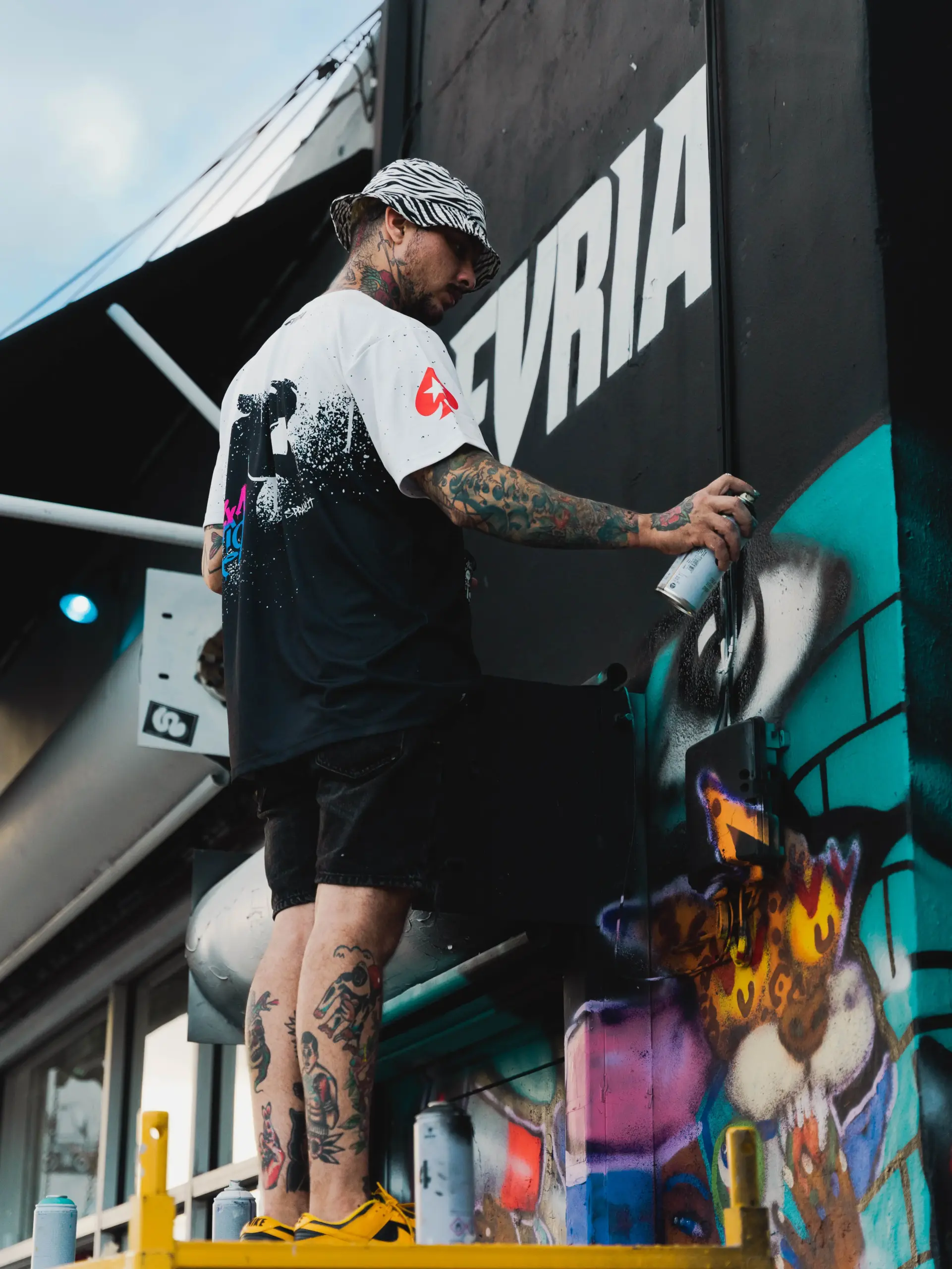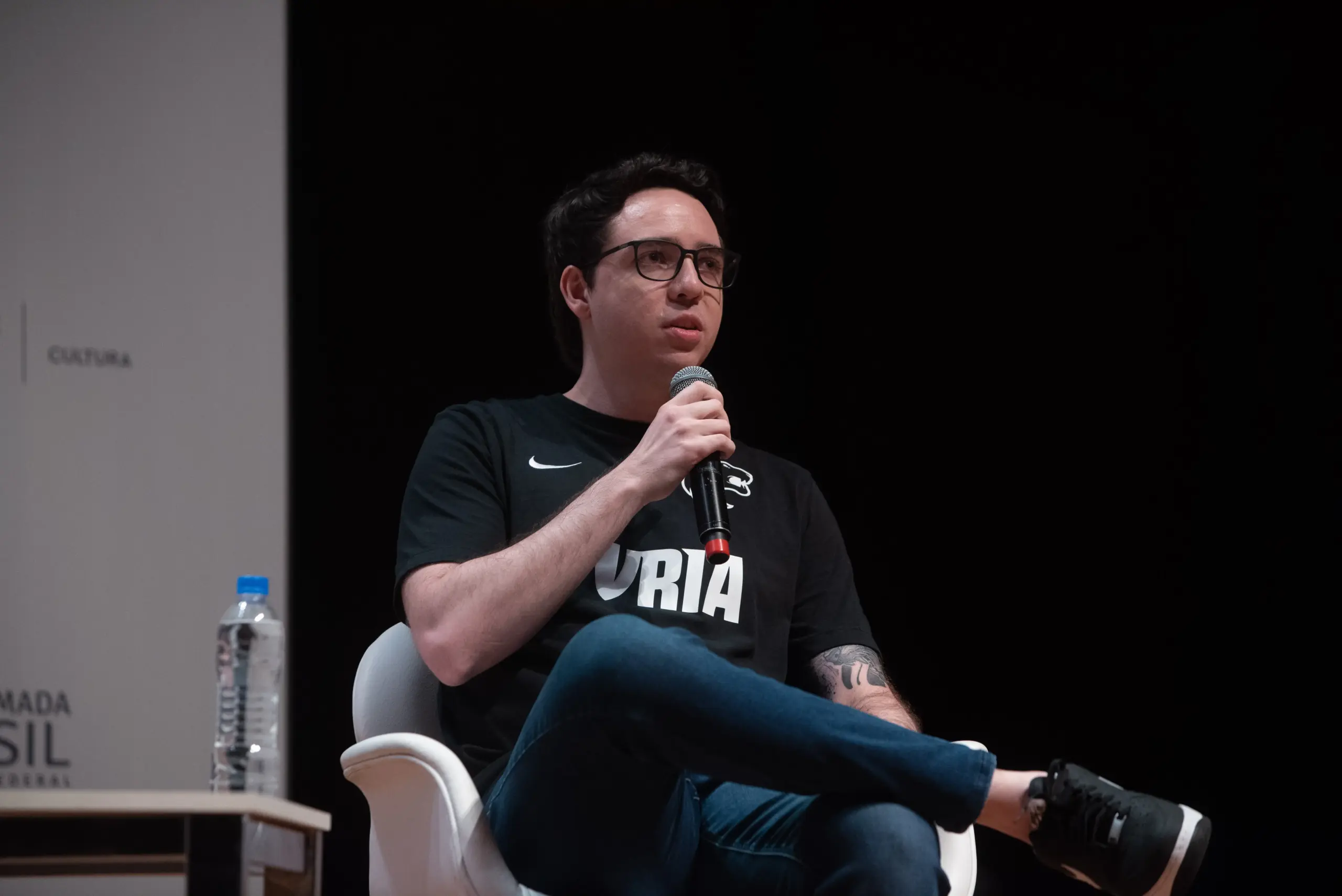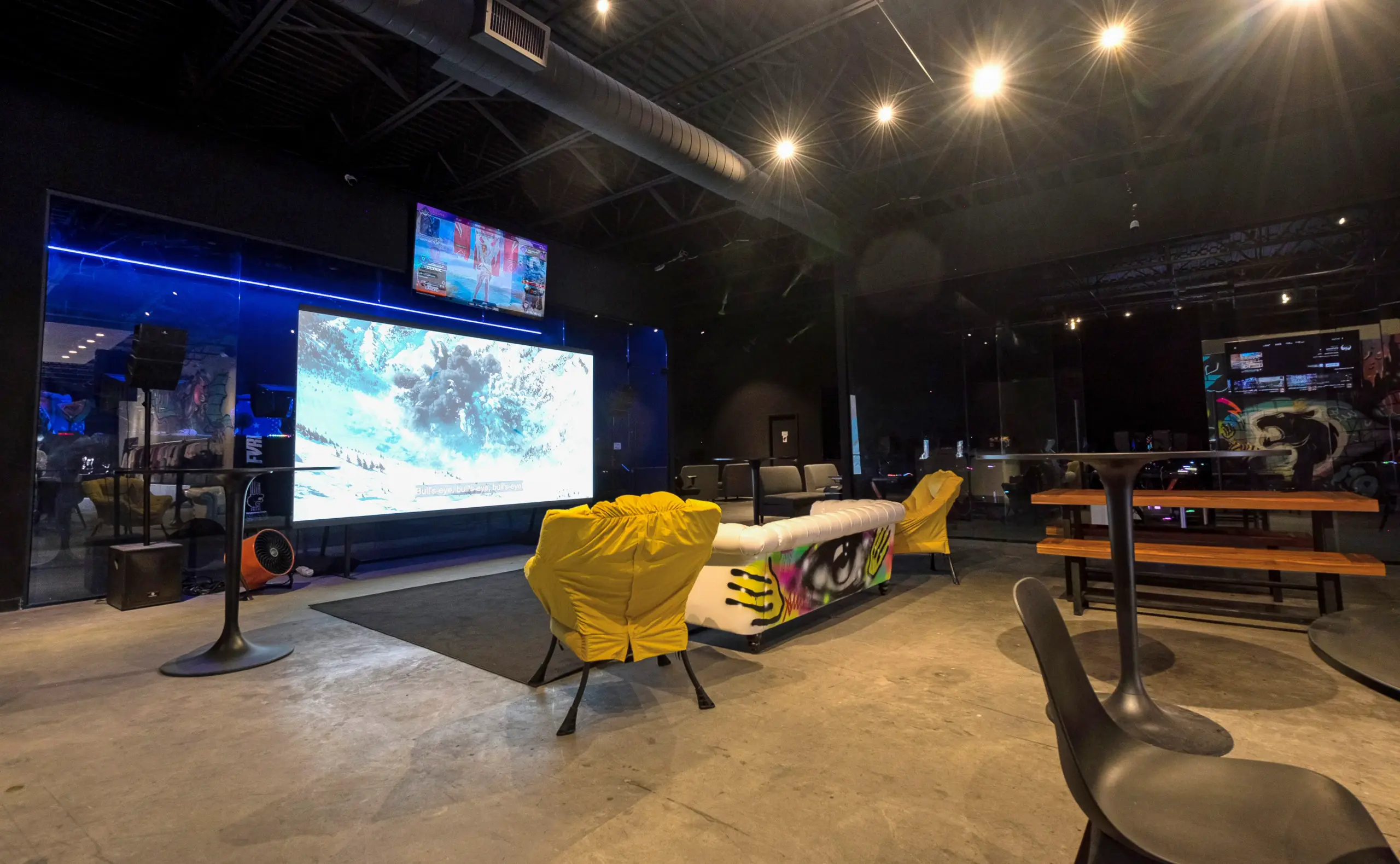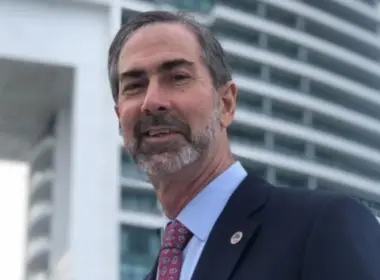The Brazilian live-streaming gaming company plants its flag in Miami
By Kylie Wang
Even in Wynwood, a Miami neighborhood that screams with brightly painted murals and sexy cocktail hotspots, it’s virtually impossible to miss the FURIA building. The Brazilian gaming company has decorated its first public venue in the U.S. with a hodgepodge of neon graffiti splashed across the front and a TV screen perched atop the entrance, showcasing the latest live video streams from the company’s professional athletes. These aren’t football or baseball players, however. FURIA’s athletes are video gamers who compete in online games like League of Legends and VALORANT. This is esports, and it’s an exploding industry.

Hidden by a mini Jumbotron inside FURIA’s Wynwood location is a booth with all the fixings for the professionals to come and compete, the live streams of their gameplay seamlessly displayed on the big screen. Racks of clothing line the walls of the main room, showing off exclusive merchandise as flamboyantly colored as the walls outside. There’s also a room for casual gamers to get together with friends and compete in LAN (local area network) party tournaments. This is F URIA in a nutshell, a Latin American esports company that has taken gaming to a new level with its unique branding and all-encompassing gaming culture.
It’s difficult to pigeonhole FURIA, a company that combines a lifestyle brand with esports teams that have their own pro players and training academies. Its branded clothing is so popular in Brazil that the company now stages exclusive releases similar to how youthful brands like U.S.-based Supreme or Kith market new products. And its players are known worldwide for their skills on the screen. “FURIA is more than just an esports organization,” says CEO and co-founder Jaime Pádua. “It is a socio-cultural movement.”

The Wynwood beachhead is the latest endeavor in FURIA’s expansion into North America. It’s the company’s first public space, where anyone can come in to use the equipment. Other locations (three in Brazil and one in Boca Raton, Florida) are used exclusively by FURIA athletes for training. In Miami, gamers can pay by the hour to use the LAN connections and play with friends on FURIA’s personal computers; the company also hosts gaming events and tournaments. The pros can stop by to play “show matches” for the fans, and the space doubles as a venue for corporate and other events – including, once, a press conference for a boxing match. This gives the company another income stream while promoting its main esports enterprise.
“We have in Wynwood the perfect opportunity to establish a business model that we want to expand worldwide,” says Pádua. “The neighborhood has precisely the atmosphere we want FURIA to engage with – street art, street culture, fashion trends, and a window for us to show our lifestyle and the cultural force we are becoming.”
Compared to more established markets like those in Asia and North America, Latin America is probably not the place you’d think of to start an esports company. But Spanish is the fastest-growing language on Twitch, the most popular service in the world for live video game streams. From 2019 to 2022, the audience for Spanish-speaking live-streams on Twitch increased sixfold, according to Bloomberg. And in 2020, the number of people who played a video game in Latin America actually outpaced the number in North America, 266 million to 210 million, according to FinancesOnline.
Still, Pádua says one of FURIA’s biggest challenges has been coming from a Latin American country. “We needed to be way more efficient than other organizations and other countries to achieve the same results,” he says.
While the Brazilian company would not release their annual gross revenue, Pádua said the startup has grown 183 percent over the last three years and in 2021 raised $4.5 million in funding; it now has over 200 employees, from players to coaches to staff. Its expansion into the U.S. has been marked by several successes, including a live competition-style event in New York last year and the acquisition of several big-time American players, including arguably their most famous, Jacob McMillin.

Known as “HisWattson” online, McMillin signed to one of FURIA’s teams in 2022, bringing an immediate boost of recognition to the company. McMillin is one of the most-watched streamers in the world for Apex Legends, a shooter-style game played mainly on consoles like Xbox and PlayStation; he won MVP of the 2022 world championship with FURIA. These international competitions are excellent marketing tools for esports companies and their athletes, often paying out substantial prize money to players (McMillin picked up $300,000 for his win) and broadcasting in multiple languages worldwide (the Apex championship was streamed in English, Japanese, Russian, Portuguese, Spanish, Thai, Mandarin, and Arabic). Social influencers are also huge in esports, with popular streamers raking in thousands or even millions from sponsorships.
With more than three billion people projected to play a video game worldwide in 2023, and some streamers broadcasting to millions of followers each day, the esports industry is growing quickly, with “brands and businesses that are not endemic to the gaming industry that want to connect with the esports audience,” says Pádua. Many companies want to reach the demographics that esports serves (mainly young people), though even people over 60 spent an average of 4.7 hours weekly playing video games in 2020, according to industry sources.
Next for FURIA is potential expansion to Los Angeles and New York. The key to this growth, however, will lie in the success of a graffiti-covered building in Miami.












